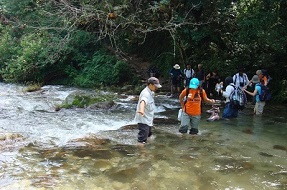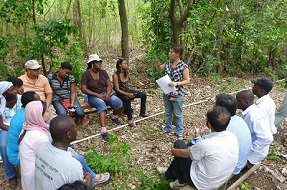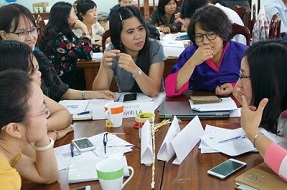About Us
We envision a world where humans and nature co-exist with oneanother in harmony, and with balance between development and protection.
Future Generations China focuses on fragile ecosystems that are of great ecological significance.
Strategies and Principles
- Building a Three-Way Partnership
- Multi-Stakeholder Cooperation
- Find and cultivate local people
- Extend the successful model
FGC actively supports the government and its local communities (villages and schools) in order to establish strong three-way partnerships that achieve resource sharing and promote project implementation.
Only from a systemic perspective can we fundamentally solve the problem by relying on multiple stakeholders. We work closely with multiple stakeholders to report and obtain relevant support. All activities of the project are designed for these parties, referring to their needs and wishes while aiming to establish an effective and sustainable cooperation system for solving problems.
Find and cultivate local people to keep the project sustainable: As a part of our process, local people are trained on the work being done in order to increase project sustainability. FGC strongly believes that under the guidance of external experts, the community can use its rich traditional culture and wisdom while utilizing local resources and forces to solve the environmental problems it faces.
To this end, we adopt the method of “training of trainers” – training selected community leaders in ecological environment protection and eco-tourism, supervising and guiding them in their practice so that they become practitioners, advocates, and promoters of local environmental protection.
Promote community-based environmental solutions explored by the project to other regions through government meetings, seminars, and peer sharing.
Our History
Future Generations China is a not-for-profit organization aimed at advancing community-based conservation and sustainable development.
Current Awards
Asahi Kasei Water Environment Preservation Awards in 2017
Gold Prize in Venture Philanthropy Competition in Shijingshan District in 2017
Beijing Micro Philanthropic projects Award for Youth Social organization in 2017
My Home is in Sanjiangyuan developed by FGC and officially published by the People’s Education Express was awarded as one of Top 50 National Excellent Popular Science Books by the Ministry of Science and Technology in 2017.
First prize in Community Service Projects in Ford’s Environmental Protection Competition in 2016
Grand Prize in Cummins Global Environmental Challenge in 2016
Major projects since 2014
Community Development and Environmental Education in Three-River Source region
Watershed Protection and Water Pollution Treatment in Shangzhuang village
Roof- Top Garden in urban community.
About Us
Future Generations promotes community-led development in partnership with government as a proven, alternative path to improving people’s lives and places. The core of Future Generations work is a system that communities and governments can use to shape their futures. This system can create large nature preserves, rapid social change, extend health services, or help countries rebound from conflict. Future Generations China has been committed to environmental protection in China since our founder helped establish a protected area around Mt. Everest in 1989. Much of our work involving communities that border national nature preserves is endorsed by Chinese president, Hu Jintao.

March 18, 1989- Mr. Hu Jintao, the former Party Secretary of TAR and current Chinese president is briefed by the first director of Future Generations China, Su Chun-Wuei, on the Qomolangma National Nature Preserve, which was originally proposed and launched by Future Generations founder, Dr. Daniel Taylor. The idea for the national government and local people to co-manage the QNNP was strongly supported by Mr.Hu Jintao. Our projects initially focused on community-based conservation, community development, and protected area management in Tibet. Over the years the breadth of our programs has grown and in 2007 Future Generations China was officially registered as an NGO in Hong Kong. In 2010, the organization was officially registered in Beijing.
Our programs not only address conservation in Tibet, but now include environmental education through the Green Long March and sustainable development projects in rural China through the Model Eco-Community Project.
Historical Projects



